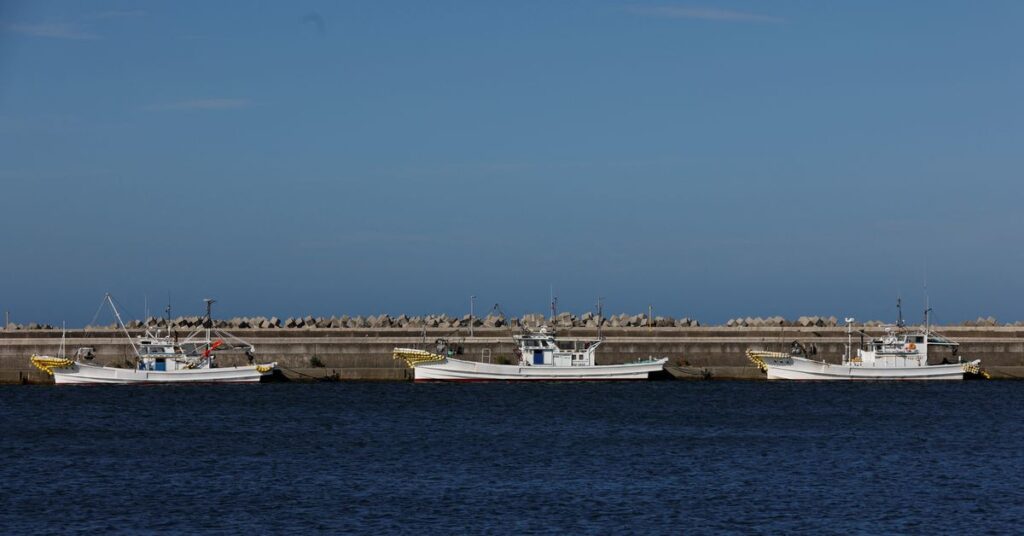[1/2]A fishing boat moored at a fishing port in Soma City, about 45 kilometers from the tsunami-destroyed Fukushima Daiichi Nuclear Power Plant, and released treated radioactive materials into the sea. August 31, 2023, Fukushima Prefecture.Reuters/Kim Kyung Hoon Acquisition of license rights
TOKYO (Reuters) – Japan’s foreign ministry told the World Trade Organization (WTO) that China’s ban on Japanese seafood following the release of treated water from the Fukushima nuclear plant was “totally unacceptable.” Said Late Monday.
In response to China’s Aug. 31 notification to the WTO of its suspension of imports of Japanese seafood products that China initiated last month, Japan explained its position to the WTO’s relevant committees and immediately withdrew the measures to China. said he asked to
Some Japanese officials have hinted that Japan could take the matter to the WTO, and the U.S. ambassador to Japan said last week that the U.S. would support it.
Chief Cabinet Secretary Hirokazu Matsuno told reporters on Tuesday that Japan plans to explain the safety of the discharged water at diplomatic forums such as the ASEAN summit in Indonesia this month and the G20 summit in India. Stated.
“Nothing has been decided about the Japan-China summit,” added Matsuno, the top spokesperson for the Tokyo government. Japanese Prime Minister Fumio Kishida and Chinese Premier Li Qiang will attend the ASEAN and G20 summits, but Chinese President Xi Jinping will be absent from both meetings.
separately statement Tokyo’s foreign ministry said on Monday that Japan had also asked China to discuss import bans under the provisions of the Regional Comprehensive Economic Partnership (RCEP) trade agreement.
Although seafood accounts for less than 1% of Japan’s global trade, which is dominated by automobiles, Japan will export about $600 million worth of seafood to China in 2022, making China its largest export market. followed by Hong Kong.
Data on Tuesday showed July seafood exports to China fell for the first time in two and a half years, falling 23% to 7.7 billion yen ($52.44 million) from a year earlier.
Since Japan announced plans to release Fukushima-treated water, inspections of goods destined for China have tightened, delaying shipments.
To ease the pain from the loss of seafood demand, Japan plans to spend more than 100 billion yen ($682 million) to support the domestic fishing industry.
(1 dollar = 146.8300 yen)
Report by Kantaro Komiya and Kaori Kaneko.Editing: Jacqueline Wong, Murarikma Anantaraman, Jerry Doyle
Our criteria: Thomson Reuters Trust Principles.


